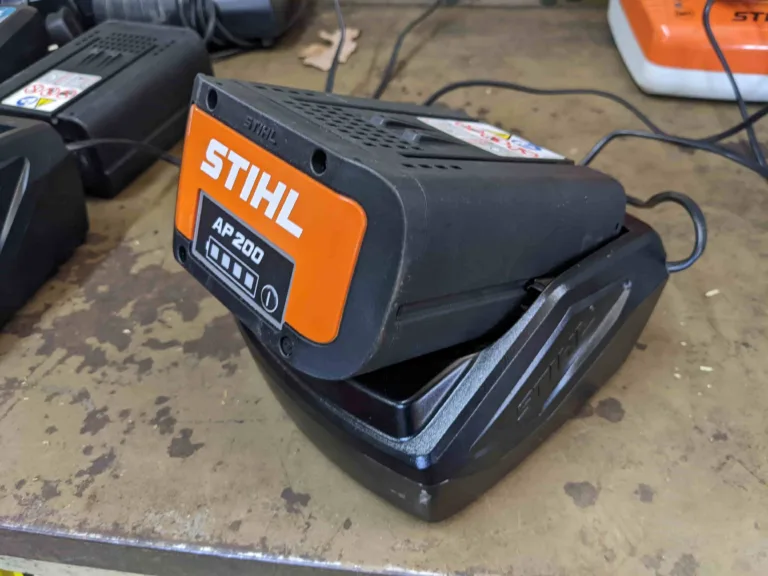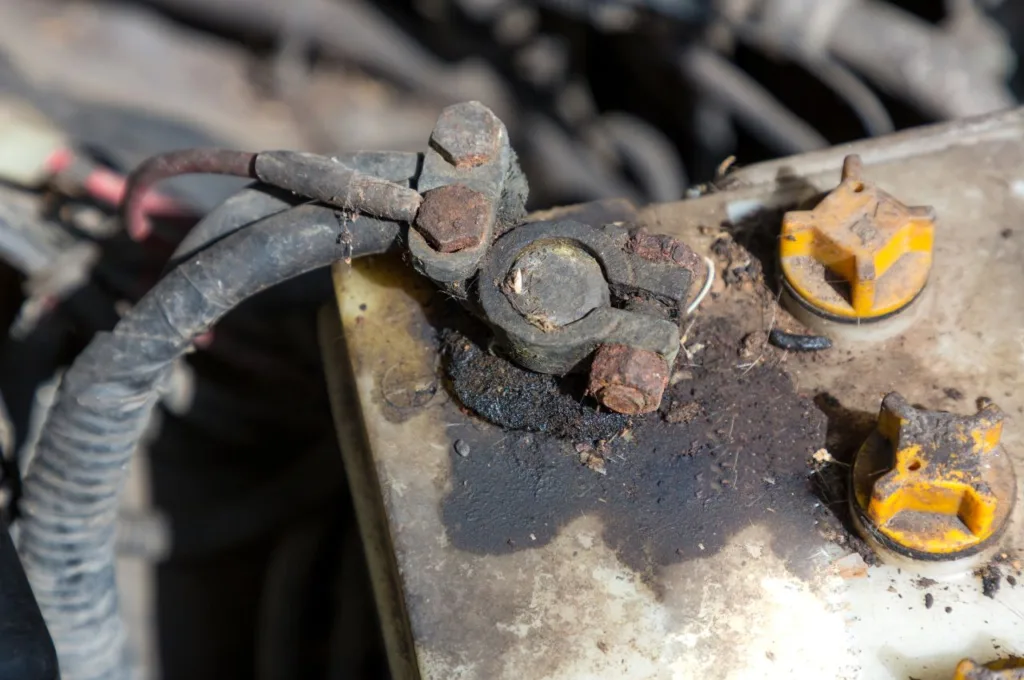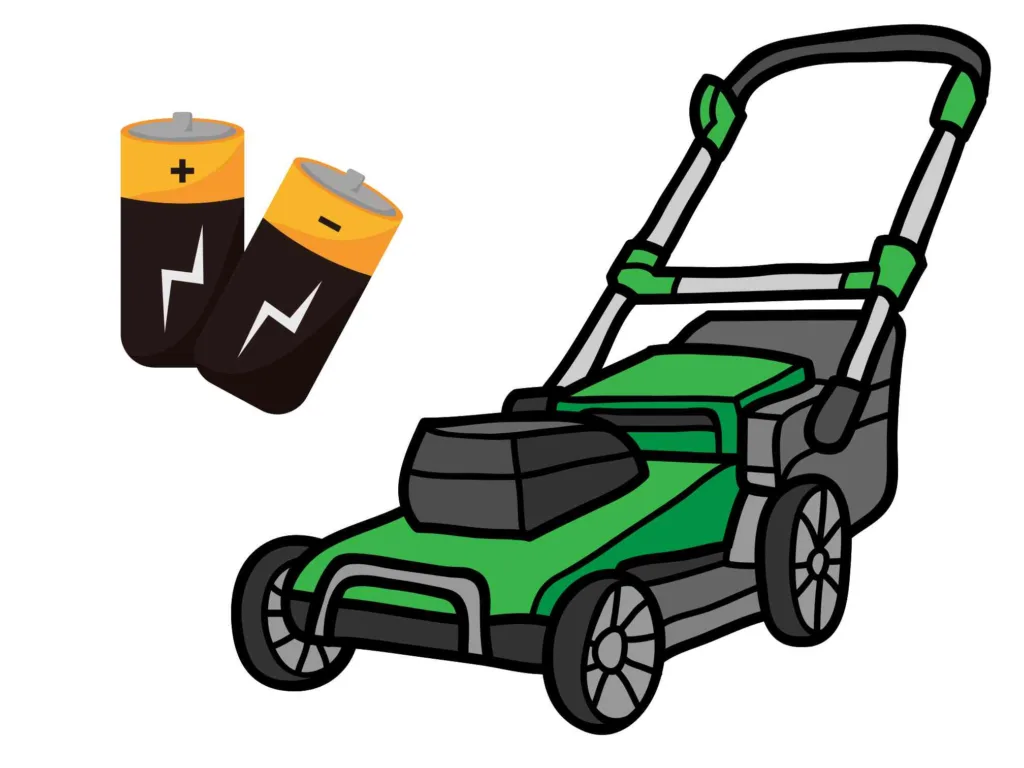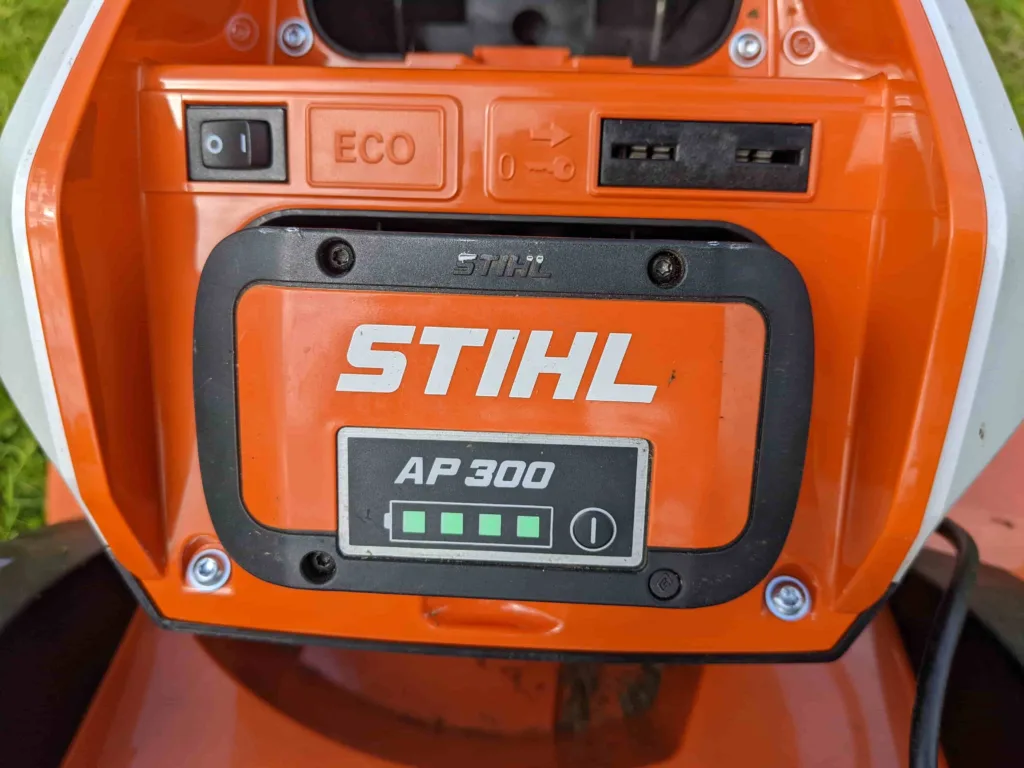One of the sure-fire ways to shorten your lawn mower battery’s lifespan is by overcharging it. But not all lawn mower batteries are at risk of overcharging.
In this guide, we’ve answered the question, “Can you overcharge a mower battery?” We’ve also discussed the possible outcomes of overcharging a mower battery and how to avoid overcharging.
✅Key Takeaways:
You can overcharge a lawn mower battery if you use an old charger that continues to send electricity into the battery once it has reached full capacity.
You can avoid overcharging a mower’s battery by following the manufacturer’s charging instructions, using the recommended battery charger, and monitoring the charging time.
Ideally, to prevent the issue of overcharging entirely, upgrade to a smart trickle charger, which shuts off or reduces electricity flow into the battery once it’s fully charged.
Table of Contents
⚡️ Is It Possible To Overcharge A Lawn Mower Battery?
It’s not possible to overcharge a lawn mower battery if you have a new battery charger, which should come with safety features that prevent overcharging. However, if you have an older battery charger, it may not have these features, so it may be possible to overcharge the battery.
Most electric lawn mower batteries should be charged with a compatible smart charger (supplied with the battery or mower). Smart chargers are equipped with circuitry that monitors the battery’s charge level and adjusts the charging current accordingly. When the battery is fully charged, the charger will automatically switch to a maintenance or trickle charge mode, which keeps the battery topped up without overcharging it.
It’s essential to use the charger specifically designed for your lawn mower battery, or at least a charger that’s recommended by the lawn mower manufacturer. An incorrect charger might have a higher voltage or different charging specifications and could potentially damage or overcharge the battery.
Our top tip is to check your user manual (you should be able to find this by searching your mower model number online) to see what advice the manufacturer gives about charging the battery. If you can’t find any information in the manual, contact the manufacturer directly.
If in doubt, only charge a lawn mower battery while you’re at home. Keep an eye on the battery and unplug the charger as soon as the battery hits full charge.
🤷♂️ What Does It Mean To Overcharge A Lawn Mower Battery?
Overcharging a lawn mower battery means that you continue charging the battery beyond its full capacity or recommended charging time. So, when the battery has been fully charged, you leave it plugged into the charger rather than unplugging it or switching off the power.
When a battery is overcharged, electricity continues to flow into the battery when it has no more capacity for charge.
The battery is subjected to a higher voltage or current than it can handle, which can result in performance issues, shortened lifespan, and potential damage (more on that below).
Note: You can only overcharge your mower’s battery if you use an old charger that continues to charge the battery when it hits full capacity. A smart trickle charger with an overcharge protection circuit won’t overcharge a mower battery.

🧐 Signs Of Overcharging A Lawn Mower Battery
Not sure whether you’re overcharging a lawnmower battery? Look out for the following signs:
Battery swelling – Overcharging causes your mower battery’s internal components to heat up and produce gas. If the gas buildup becomes too high, it can cause the battery to swell. Look for distortions or bubbles on the battery surface, which may affect its ability to fit properly in the mower.
Leaking battery acid – Another sign of an overcharged battery in your lawn mower is leaking fluid from the battery. Heat and gas buildup can cause the battery to leak corrosive electrolyte fluid. Always wash your hands thoroughly after touching a leaking battery and avoid touching your mouth at all costs.
Decreased battery performance – If you’ve noticed that your lawn mower’s run time is significantly shorter, overcharging the battery might be to blame.
Increased heat generation – It’s normal for a battery to feel warm to the touch after charging, but if the battery feels very hot, this might be a sign of excessive heat caused by overcharging.

😞 Possible Outcomes Of Overcharging A Lawn Mower Battery
Here are the most likely outcomes of overcharging your mower’s battery:
🪫 Decreased Battery Capacity
A decrease in battery capacity can cause “battery memory”, which happens when the battery gradually loses its ability to hold a full charge. This is due to several reasons, including prolonged exposure to excess heat while charging, which damages the battery’s cells and affects its ability to retain and deliver power.
“Battery memory” reduces the battery’s capacity for holding charge, resulting in shorter runtimes and decreased overall performance of the lawn mower. Not ideal if you have a medium-to-large lawn to mow and need all the battery capacity you can get!
🗓 Shorter Battery Lifespan
An overcharged battery is also likely to have a shorter lifespan (referring to the months or years you can use the battery before you need to replace it with a new one).
Overcharging accelerates wear and tear on the battery’s internal components, shortening its overall lifespan. The battery may hold less charge over time, requiring more frequent recharging. You’ll eventually reach a point of needing to replace it because it can’t hold enough charge for even a quick 10-minute mowing job.
🎇 Risk Of Leaking, Fire, & Explosion
In a worst-case scenario, overcharging your lawnmower battery might cause the battery to swell or leak corrosive fluids. This would damage the battery casing and affect its performance, ultimately making it unsafe to use. Handling a leaking battery is dangerous, and you’ll need to react appropriately if you get battery acid on your skin.
Certain types of lawn mower batteries also carry the risk of explosion if they’re overcharged. A lead acid battery produces hydrogen gas when it’s overcharged, which may explode if ventilation is poor.
Luckily, modern batteries often have safety features to prevent such occurrences, although overcharging can still increase the risk.
🏎 Reduced Lawn Mower Performance
When used in your lawn mower, an overcharged battery may struggle to provide a consistent and stable power output.
As a result, your mower’s cutting performance may be reduced, leading to uneven operation. This is the exact opposite of what you want in a battery lawn mower, which needs to be powerful enough to mow through rough or long grass while still conserving energy to get the job done on a single charge.

📰 Follow The Manufacturer’s Instructions
Your lawn mower battery manufacturer should outline how to safely use the batteries, including any safe charging practices.
Read the charging instructions provided in the lawn mower’s user manual. These should outline the recommended charging time and best practices for your specific battery model.
As long as you follow the instructions, you shouldn’t go wrong.
🔌 Use the Right Charger
It goes without saying that you should always use the charger provided by the lawn mower manufacturer or one that’s specifically designed for your lawn mower battery model.
If you pick a random charger that happens to fit the battery, that doesn’t mean it’s right for the battery type! It might have the wrong voltage or charging specifications, which could lead to overcharging.
If you can’t find your charger, buy a new one. You should be able to find the right charger for your lawnmower battery with a quick Amazon search.
⏰ Monitor Charging Time
If you own an older charger that doesn’t have overcharge protection capabilities, make sure to monitor the charging time to prevent overcharging.
Avoid leaving the battery on charge indefinitely (so no charging your lawn mower battery overnight!). Once the battery is fully charged or reaches the recommended charging time, disconnect it from the charger or turn the switch off until you have a moment to return the battery to the mower.
Don’t know how long the charging time is for your lawn mower battery? Check your user manual or refer to our average lawn mower battery charging time guide.
📡 Upgrade To A Smart Charger
You won’t have to worry about overcharging your lawn mower’s battery if you upgrade to a smart trickle charger that has built-in safety features, such as automatic shutoff when the battery is fully charged.
Trickle chargers monitor the battery’s charge level and reduce the charging current when the battery is fully charged.
You might also decide to replace your mower’s battery to avoid overcharging. Lead acid batteries are safer to charge over an extended period compared to lithium-ion batteries because they’re not as efficient at holding charge. Ideally, though, rather than risking overcharging the battery, you should upgrade to a trickle charger.

📑 Top 4 Safe Battery Maintenance Practices
Now you know what it means to over-charge a lawn mower battery and how to prevent overcharging, let’s finish with our top 4 safe battery maintenance practices.
Store the battery properly when it’s not in use. Make sure to store your mower’s battery in a cool, dry, well-ventilated area when it’s not in use. The battery should be kept out of direct sunlight and away from any surfaces that might conduct heat and increase the battery temperature.
Avoid fast charging. Always use the right charger for your battery. Most lawn mowers use 12-volt batteries. Use a charger that’s designed for your battery voltage and avoid rapid chargers that aren’t recommended by the manufacturer.
Don’t let the batteries discharge completely. Some batteries for lawn mowers will die if they’re left to discharge completely. Check your user manual – if the manufacturer recommends that you keep the lawn mower battery charged throughout the year (even during periods of no use), then be sure to do so.
Protect the battery terminals. The battery terminals are prone to corrosion and may be damaged by water, dust, and dirt. Store the batteries where you can protect the terminals from this damage, and use a clean cloth or a wire brush to remove corrosion.
🏁 Final Word
Phew – if you’ve made it this far, you should now have all the knowledge you need to avoid overcharging your lawnmower batteries. Thanks for sticking with us!
If you still have other questions, there’s a good chance we’ve answered them in the FAQ below.
🔋 FAQs
How long can you leave a lawnmower battery charging?
You can leave a lawnmower battery to charge for as long as you want if you have a smart trickle charger (which reduces or shuts off the charging current as soon as the battery reaches full capacity). If you have an old battery charger, you should only leave the battery charging until it reaches full charge. The charge time depends on the battery model, size, and age, as well as the charging power, but most push lawn mower batteries are fully charged within 90-120 minutes.
Can you leave a lawnmower battery charging overnight?
You can safely leave lawn mower batteries charging overnight if you have a trickle charger that will shut off once the battery is charged. Otherwise, don’t leave your batteries on charge overnight because it will lead to overcharging. An overcharged lawn mower battery may have a reduced power output and battery life.
Should you charge your lawn mower battery after every use?
No, you don’t necessarily need to charge your lawn mower battery after every use. The charging frequency depends on the size of your lawn and your mower battery’s run time. For instance, if it only takes you 20 minutes to mow your lawn and your lawnmower battery has a 45-minute run time, you should still have charge remaining for the next use. Charging the battery too frequently and when not necessary could reduce its capacity and shorten its lifespan at a faster rate.
What kills the battery on a lawn mower?
There are a few things that kill the battery on a lawn mower, including leaving the battery plugged in until it overcharges, letting the battery sit in a discharged state for an extended period, exposing the battery to extreme temperatures, dirt, or water, or simple wear-and-tear from years of regular use.
